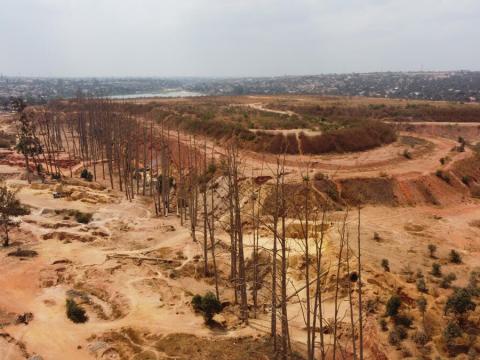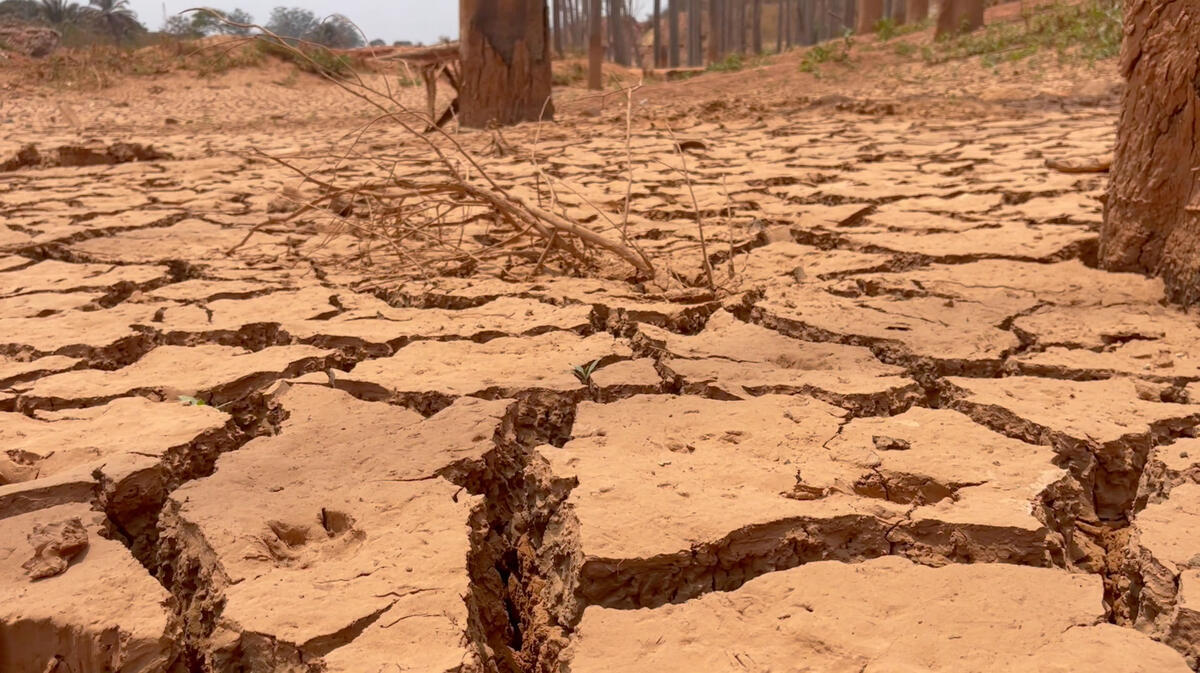Lake Bob in Grand Katanga

For years, people living near Lake Bob in Lualaba province in southern Democratic Republic of the Congo have watched their water supply as well as their livelihoods dry up.
The lake, located near DRC’s copper and cobalt mining belt, has almost disappeared due to the effects of a changing climate, accelerated by environmental degradation from mining activities.
The dire situation has forced many families to leave the area. Tshilombo, a widow, and her seven children are among the families remaining. She used to successfully provide for her children by working around the lake and relied on the water from the lake to irrigate her garden and grow vegetables. However, the family’s financial situation has become so dire that her children must now work. They earn money by collecting water for other people in the community.
"We used to eat three times a day. But now we eat once a day, and very late at night. Lake Bob has dried up because of mining activities and the very long dry seasons," said Tshilombo.

Mining activities next to Lake Bob involved removing sand from a quarry and relocating it to the lake, effectively transforming the lake into a sand fill, with almost no potable water for locals.
Access to water and productive land are critical for both food security and sustainable livelihoods. Lake Bob resident and historian, Kalenga Kazadi, says much of the conflict in his area stems from land disputes and that the threat of hunger or loss of livelihoods also plays a role in driving tensions in the community.
“The lake has been a source of life for me since I was gardening. My garden produced what I needed to support my household ... We ate what we needed. The children didn't ask for anything because the food was within their reach and every one of them was satisfied,” said Kalenga Kazadi.
Now his family only eats once a day.
“When foreigners came [for mining], Bob disappeared. There are no more fish, there's no more life. My garden no longer produces crops and the people who live here can no longer afford to support themselves.”